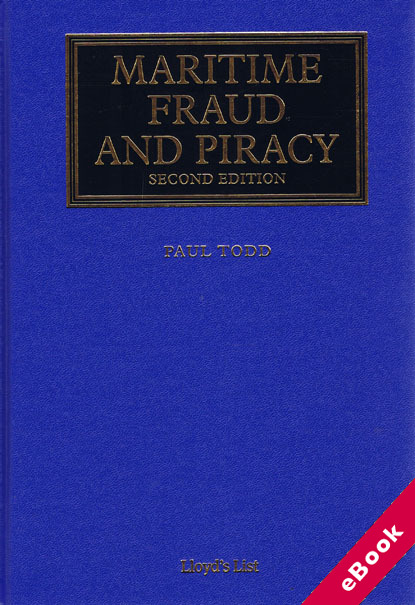
The device(s) you use to access the eBook content must be authorized with an Adobe ID before you download the product otherwise it will fail to register correctly.
For further information see https://www.wildy.com/ebook-formats
Once the order is confirmed an automated e-mail will be sent to you to allow you to download the eBook.
All eBooks are supplied firm sale and cannot be returned. If you believe there is a fault with your eBook then contact us on ebooks@wildy.com and we will help in resolving the issue. This does not affect your statutory rights.
This is a law book about maritime fraud and piracy, providing an up to date review of modern piracy. The book examines the ramifications for marine insurance and carriage of goods by sea, including in particular those of the recent increase in kidnap and ransom hijackings. Maritime fraud directly impinges on contracts for international sale and carriage, documentary credits and marine insurance, and its impact is the main focus of this book.
Piracy has changed over the last decade, with the increased prevalence of kidnap and ransom attacks. These give rise to legal consequences which are different from those of the more traditional violent thefts of cargoes and ships at sea. The book examines the ramifications for marine insurance and carriage of goods by sea.
The book covers all varieties of maritime fraud, some but not all of which are very serious. At the top end of the scale are phantom ships and thefts of entire cargoes. At the lower end is conduct which though technically fraudulent, is probably better characterised as conduct which crosses the line of acceptable business practice.
Technology can assist in the battle against fraudsters, but equally, new opportunities for fraud will be created. The central issue will remain, to what extent traders are prepared to sacrifice the system’s virtues to combat fraud, and the extent to which it is rational to do so. The last chapter of the book examines maritime fraud and technology.